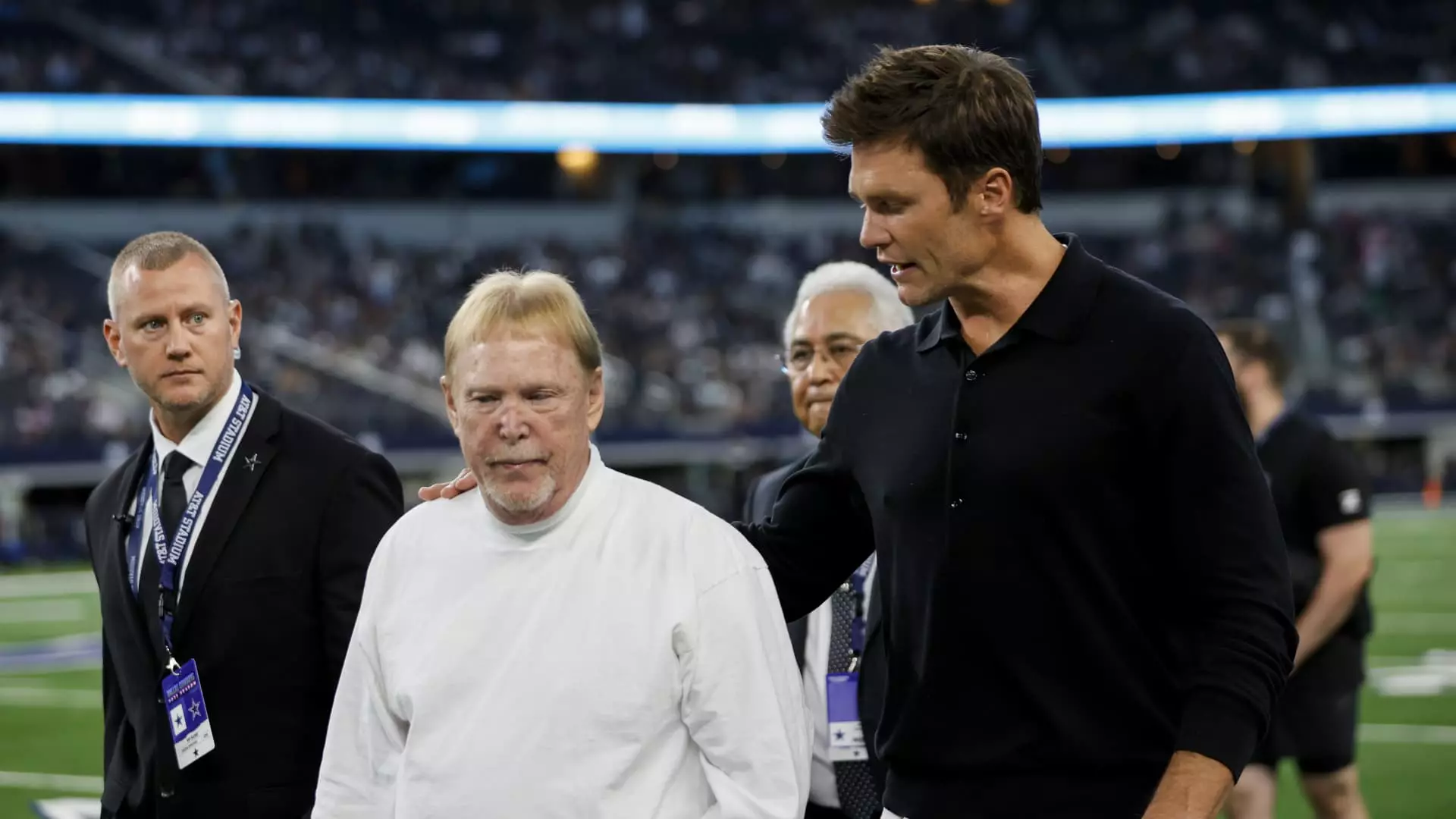The recent approval by NFL owners allowing Tom Brady to become a minority owner of the Las Vegas Raiders marks a significant milestone in both the sports and business landscapes. This acquisition not only signifies the Hall of Fame quarterback’s expansion into franchise ownership but also highlights broader trends in the valuation and financial structures of professional sports teams.
Brady, alongside his business partner Tom Wagner, has secured a 10% stake in the Raiders, reported at a valuation of approximately $3.5 billion. This partnership, facilitating an equity investment of around $220 million, reflects the increasing financial stakes in the league. The agreement also included a notable 10% “flip tax,” a fee designed to bolster the benefits of the existing owners by redistributing funds among the other 31 teams. The unanimous approval from the league’s owners, despite Brady and Wagner’s absence from the meeting, underscores the willingness among owners to welcome high-profile individuals into their ranks.
What’s particularly telling is the disparity in valuation reported by different sources. CNBC posits the Raiders’ worth at $7.8 billion, implying that Brady and Wagner’s investment came at a considerable discount—over 50%. Typically, limited partners—those without decision-making authority or a direct path to control—receive a standard discount of about 20% to 25%. This suggests that Brady’s entry is viewed as a boon for the Raiders, likely buoyed by his star power, widespread following, and marketability.
The Las Vegas Raiders’ financial resurgence since their relocation from Oakland in 2020 cannot be overstated. The franchise has transitioned from being one of the lower-valued teams in the league to its current status as the fifth-most valuable franchise according to CNBC’s Official 2024 NFL Team Valuations. With 2023 revenue reaching $780 million, the Raiders rank third in the league, illustrating the successful monetization of the Las Vegas market. A significant contributor to this revenue spike is Allegiant Stadium, which, despite its relatively smaller capacity of 65,000, has become synonymous with high ticket prices—the average being $169.
Additionally, Allegiant Stadium’s dual-purpose function as a venue for various non-football events has generated over $50 million in ancillary revenue from concerts and other events during 2023. This model of maximizing facility use reflects a sophisticated approach to sports management, effectively diversifying income streams rather than relying solely on football games.
As Brady steps into his new role, his history and stature in the NFL cast a long shadow across the franchise. His previous retirement has paved the way for a prominent broadcasting career, with a reported $375 million deal with Fox Sports. However, acquiring team ownership comes with restrictions designed to maintain competitive balance; he cannot partake in production meetings or have direct access to team operations, players, and coaches. Moreover, he’ll be required to abide by league rules that restrict public criticism.
Brady’s role not only adds star power to the Raiders but also aligns them in a broader trend where successful athletes transition into ownership roles. The ex-quarterback joins a select group of former players who have made the leap, emphasizing the evolving dynamic of athlete entrepreneurship. This also hints at potential changes in how ownership groups view the influx of cash from high-profile individuals, which might indicate an unspoken shift in the culture of team ownership within the NFL.
Brady’s investment stands out for another reason: it signifies a step toward greater diversity among ownership in professional sports. With only a handful of former players holding ownership stakes in the NFL, Brady’s entry reflects an encouraging trend. It sends a clear signal that players can transition from the field to the boardroom, potentially enticing other high-profile athletes to explore similar pathways.
Tom Brady’s entry into the ownership of the Las Vegas Raiders is poised to reshape the franchise’s identity and financial strategy moving forward. As a synergy of sports prowess and business acumen, this move not only enhances the Raiders’ market appeal but also sets a precedent for future athlete-owners in the NFL.

